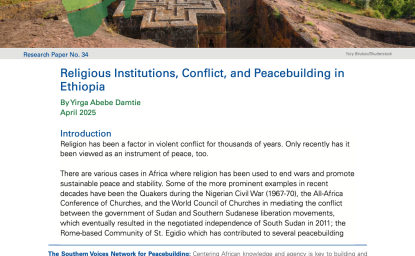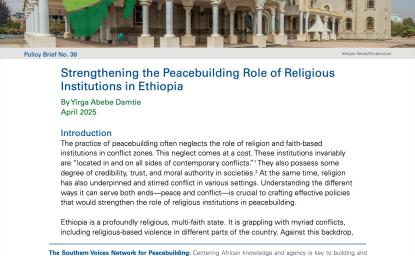This article was released as a sneak peak into Africa: Year in Review 2024. Check in periodically for more releases in the lead up to the launch event in early February.
W
hen the G7 leaders launched the Partnership for Global Infrastructure and Investment in 2022, this type of collaborative economic corridor development was an untested concept. In less than a year, the Lobito Corridor became the flagship example of what can be done with focused diligence, partnership, and common goals.
The Lobito Corridor—connecting Angola, the Democratic Republic of the Congo (DRC), and Zambia through freight rail, energy infrastructure, agribusiness development, and digital access—has captured the imagination of policymakers and industry alike. By refurbishing the existing Benguela railway from the Port of Lobito into the DRC and connecting it with a new 800 km rail line spanning Angola and Zambia, the Lobito Corridor is doing much more than connecting Africa’s copper and cobalt belt to global markets. Large and small companies alike are leveraging the commerciality of the rail, which is cutting down transit time, increasing investment, improving local connectivity, and boosting regional markets along the Lobito Corridor. For example, Carrinho, an Angola-based food producer, is leveraging the promise of new infrastructure to bring an estimated one million smallholder farmers to market. Similarly, Sun Africa is providing clean energy and drinking water solutions across Angola, and Africell is expanding trusted vendor 4G and 5G networks along the Lobito Corridor and beyond.
Each of these projects leverages different US government, G7+, and multilateral development bank tools to finance and de-risk implementation. They are designed to address the growing gap in critical infrastructure investment, with estimates of the financing gap on the African continent as high as $100 billion per year. As we look at our relationships with emerging economies around the world, it is abundantly clear that we need to show up in the manner we are asked to—by bringing real commercial investment into growth economies and essential sectors. This serves our partners’ efforts to meaningfully grow their economies and move up the value chain. It also serves the United States and our partners as we tackle urgent shared challenges—from the climate crisis to vulnerable critical mineral and semiconductor supply chains—all while meeting growing energy demand as the world takes hold of artificial intelligence.
President Biden made his final overseas trip of his presidency to Angola and while there, he celebrated the progress and promise of the Lobito Corridor. Africa is projected to continue to be the world’s fastest growing continent, with over 60% of its population under 25 years old. In 18 months, the United States and its partners have mobilized over $6 billion in investment along the Lobito Corridor across multiple sectors, reaching female farmers, budding engineers, and entrepreneurs on the continent. We should replicate this model in parts of the world where our partners are asking for more choices. Our investments can serve Western and local industries alike while creating much needed resilience in the global supply chains of the future.
Helaina Matza is the acting special coordinator for the Partnership on Global Infrastructure Investment at the US Department of State.
Read the rest of the AYIR 2024 early release:
Author


Africa Program
The Africa Program works to address the most critical issues facing Africa and US-Africa relations, build mutually beneficial US-Africa relations, and enhance knowledge and understanding about Africa in the United States. The Program achieves its mission through in-depth research and analyses, public discussion, working groups, and briefings that bring together policymakers, practitioners, and subject matter experts to analyze and offer practical options for tackling key challenges in Africa and in US-Africa relations. Read more

Explore More
Browse Insights & Analysis
Religious Institutions, Conflict, and Peacebuilding in Ethiopia

Spying on Poachers



